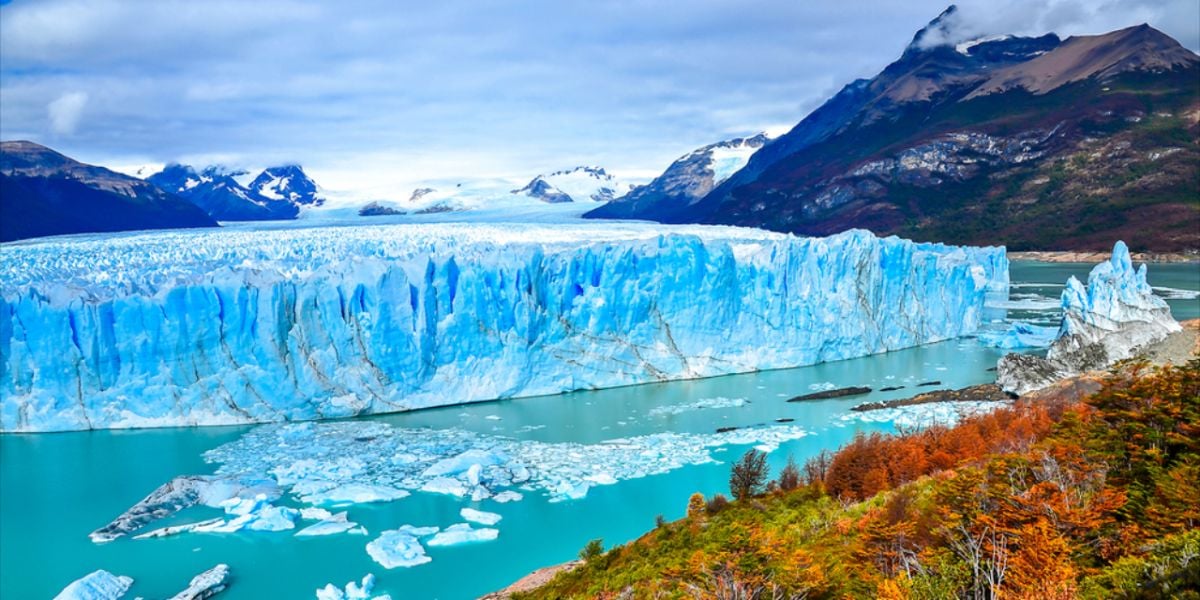
When travelling to Argentina, there are certain things you ought to know. Read on to discover more about this wonderful country, such as its food, climate, and customs, as well as other useful information.

Entry requirements
Upon arriving in Argentina, citizens of most countries* will receive a free transitory visa, which is valid for up to three months. Besides that, unless you are planning to work there or move permanently, you won't need anything other than a passport that is valid for six months beyond your travel dates, a round-trip or onward ticket, and a valid visa for your next destination (if applicable). For more information about the other types of visas, read our articles on how to get a visa for Argentina.
*You will find a complete list of the countries here. If your country is not listed, you will have to apply for a tourist visa at the Argentinian embassy or consulate in your country. For citizens of Grenada, Jamaica, Malaysia, the transitory visa is only valid for 30 days.
Vaccinations
The vaccinations required for travelling to Argentina are Hepatitis A, Hepatitis B, Tetanus, and Typhoid. Rabies and Yellow fever are also recommended for some travellers, based on their age and itinerary. Contact a travel health specialist to find out whether this applies to you.
There is a risk of contracting the Zika virus in Argentina, especially in the provinces of Chaco, Formosa, Salta, and Tucuman. All travellers are at risk, but the most at risk are pregnant women or women planning a pregnancy, so if you fall into this category, you are advised to consider postponing non-essential travel to Argentina.
Visit Fit For Travel for more information on any of the diseases mentioned above.
What to pack
Besides the usual travel essentials, here are a few other things you should include on your list of things to pack for Argentina:
Insect repellent
Mosquitoes in Argentina tend to feast at night, so be sure to pack repellent, especially if you're planning to travel during the wet season. Many viruses and potential illnesses, including Zika, come from mosquitoes and other insects so take a repellent with at least 20%-30% DEET in order to keep the infecting pests away or use more natural methods such as lemongrass essential oils or cream.
Travel sickness medicine
Argentina is a vast country, and bus journeys tend to be long and tedious, and will sometimes take you over bumpy roads. It's worth taking medication that will help you avoid any discomfort, headaches, or nausea.
Varied Clothing
The temperature in Argentina varies drastically, so be sure to pack a variety of clothing, from shorts and t-shirts for Buenos Aires and the northern provinces, to fleeces, hats, and gloves for Patagonia and the south. Bring an umbrella too, as rain is common in some parts of the country.
Dollars
Bringing US dollars to Argentina and changing them in the country is the most cost-effective way to travel. This is because the government has almost completely barred anyone from officially purchasing dollars but, as Argentines rely heavily on them, an unofficial market with a separate rate known as the 'blue dollar' has emerged. This rate is significantly higher, meaning your money will go much further if you trade it wisely. You can compare current rates via La Nacion's website.
Food from your home country
There isn't much variety where food in Argentina is concerned and, although the meat there is renowned for being the best in the world, other meal options tend to be rather unexciting. Thanks to the numerous Italian immigrants, there is plenty of pizza and pasta on offer, but finding food from other parts of the world can be difficult and expensive, so you might want to take some non-perishable items from your home country with you. NB: you are only permitted to enter the country with no more than 2kg of food.
Climate
The climate in Argentina is very diverse, ranging from tropical to polar. Here is what to expect in a few popular tourist destinations:
Buenos Aires
Buenos Aires gets extremely hot and humid in January and February but cools down to a more agreeable temperature in March. The winter months of June to August are much cooler and will require warmer clothes.
Iguazú Falls
The climate along the Iguazú River and the Misiones Province is humid, with temperatures staying high throughout the year. Rainfall is common, particularly from January to March.
Salta
Salta has a subtropical highland climate, making for year-round pleasant weather.
Bariloche
Bariloche is prone to wide temperature variations, despite its relatively low altitude. Expect dry, windy summers, and rainy winters.
Ushuaia
Ushuaia is one of the chilliest regions in Argentina and stays cold all year long, with average temperatures of 5°C.
A few more things to note
Language
In Argentina, as in most of Latin America, Spanish is spoken, however, it varies greatly from other Spanish-speaking countries. Castellano, as they call it, is a dialect that uses voseo in both speech and writing and the pronunciation is also different, with 'll' and 'y' being pronounced as 'sh'. Seeing as Argentina is based on a heritage of mainly Italian and Spanish immigrants, the language has a strong Italian influence.
Typical greetings
Argentines tend to greet one another with a 'cheek kiss' and, aside from business interactions, this is how people expect you to say hello and goodbye. Waving is considered rude, so when you leave or arrive at a social gathering, be sure to kiss everyone first.
Tipping
Tipping in Argentina is not mandatory, although in restaurants and hotels, people do traditionally tip between 10% and 15%. In the case of taxi drivers, it is not common to tip unless they perform an extra service, such as carrying your luggage.
Punctuality
Locals in Argentina are very relaxed about timekeeping, so do not be alarmed when they show up late for any type of event; it is not a sign of disrespect. If you are invited somewhere, showing up at anything up to an hour late is considered acceptable.
Safety
You should be wary of criminal activity in Argentina, particularly in bigger cities. Always arrange for taxis to pick you up from secure locations, be on your guard when using public transport or when on the street, and keep your passport and any valuables in a hotel safe. It is also advisable to travel in groups, especially at night.
Hygiene
Sanitation and hygiene are relatively high in Argentina, and tap water is generally safe to drink throughout the country, but take precautions as well.
We hope you found this article useful! For more articles on travelling in Argentina, visit our website.
Useful links:
Foreign embassies & consulates
Foreign Travel advice
Health advice
Weather
We do our best to provide accurate and up to date information. However, if you have noticed any inaccuracies in this article, please let us know in the comments section below.








